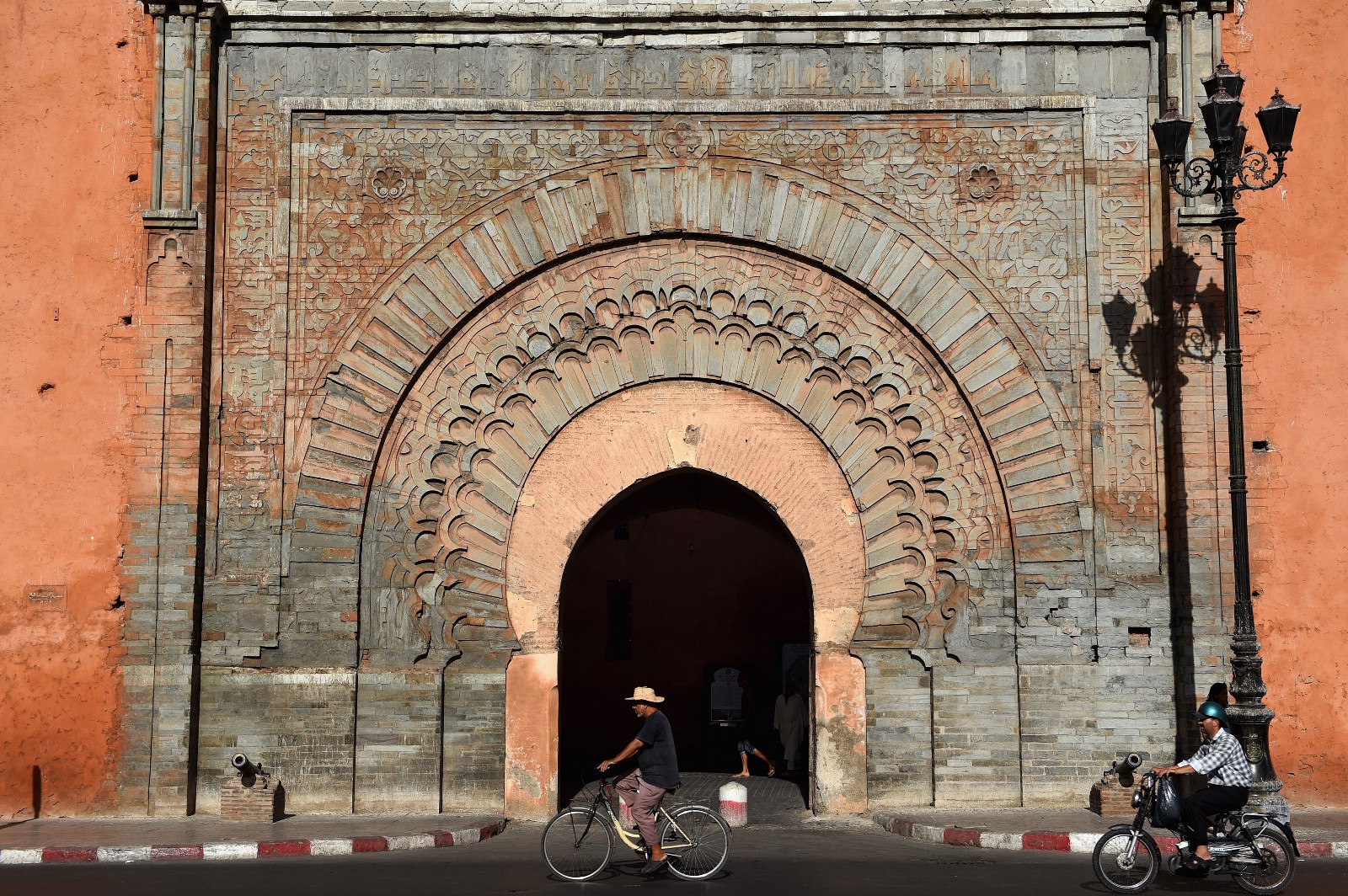
(Photo:Christopher Lee/Getty Images)
The Royal Mirage Deluxe sounds like the name of a casino that Donald Trump ran into the ground during the 1990s. In fact, it’s a rather swish (and apparently solvent) hotel in Marrakech, Morocco, where the bar stayed open until dawn today so that delegates, activists, and lots of anglophone journalists could drink and watch the world go to hell on CNN.
It started out as a sort of victory party—one staffer for an American non-profit wore a Clinton/Kaine bumper sticker on the back of his blazer, and several journalists were sucking on expensive cigars. As late as 3 a.m. local time, with Florida and Ohio tipping definitively toward Trump, there was optimism and, eventually, the mad buoyancy of desperate men. One United Nations aide predicted a miracle in Florida: “Broward County will save us!” The cry was taken up by others in the room. There is something terrifying about hearing the phrase “Broward County” echo through a Moroccan bar in the middle of the night. It did not end well.
The watch-party, like most of COP22, represented everything despised by Trump’s base: Here were polyglot idealists, chattering across borders like good neoliberals—the kind of people whose jobs are sufficiently secure and interesting that they are sent in professional capacities to exotic foreign cities, where they mix peaceably with Muslims and pursue transnational policy discussions about the future of the world. This was a firmly anti-Trump crowd, and also the most likely to be loathed by his millions of voters. No wonder they couldn’t read the tea leaves until close to dawn. Some of them claimed never to have met a Trump voter.
By 4 a.m., a handful of press officers and civil-society spokespeople found themselves tearing up their briefing notes and writing a whole new set of reports, all for press conferences they would have to give just four or five hours later.
This morning saw a pause in the self-congratulation endemic to these talks, and the most pointed words came, as usual, from civil society. Jesse Bragg of Corporate Accountability International stressed that advocates in America and beyond need to step up their ground-game on climate under a Trump presidency, especially given that Trump has pledged to dismantle the Environmental Protection Agency.
“There’s no telling what’ll happen with the EPA or the CPP [Clean Power Plan]. We need to be at every fossil-fuel project to block it,” Bragg said, pointing to protests over the Dakota Access Pipeline as an example of the sort of gutsy action that America will need under a Trump regime. Bragg also predicted that global momentum on climate action was strong enough to clear certain hurdles, even absent American commitments. “This has never been America’s alone to implement. The world cannot wait for the U.S.; they must move ahead with or without the States.”
Jean Su of the Center for Biological Diversity (who was at the Mirage last night, and still has not slept) sought to quell despair: “I do believe that climate progress will not crash and burn because of one single man who was elected yesterday…. One single man cannot ruin a whole 20 years of progress on climate change.”
Mid-morning, I saw two French broadcast journalists standing in the shade of a palm tree, watching Trump’s victory speech on an iPhone, laughing like children.
Some of the most poignant remarks came at a morning briefing organized by Friends of the Earth, where Geoffrey Kamese of Uganda expressed deep sadness about what Trump means for the future of his continent:
“Today many Africans have woken up horrified that we have a man in the White House who does not even accept that climate change is real; a president who has promised to back more fossil fuels, and who has promised to pull out of the Paris Agreement. This means that people on this continent will pay with their lives for the results of this election.”
Wilfred D’Costa of the Asian Peoples’ Movement on Debt and Development, speaking after Kamese, was even more brutal in his assessment:
“One never had any hopes of America doing anything. But this is really shocking for people in the South…. Here we have a president who is going to accelerate the suffering of the common people all over the world. We cannot accept this death sentence. The bipolar politics in the U.S. mean you must live in the frying pan or jump into the fire. Anyway, you have decided to jump in the fire, and we are not going to be a part of that.”
Jean-Claude Juncker, president of the European Commission, and Donald Tusk, president of the European Council, offered softer admonitions in their joint letter of congratulation to President-elect Trump today, urging him not to abandon American climate commitments and inviting him to a European Union-United States summit “at [Trump’s] earliest convenience.”
Speaking to reporters in Berlin, German Chancellor Angela Merkel emphasized human rights, in a clear reference to Trump’s exclusionary rhetoric: “Germany and America are connected by values of democracy, freedom, and respect for the law and the dignity of man, independent of origin, skin color, religion, gender, sexual orientation, or political views,” Merkel said.
At COP22 today, the youth delegates are composing a letter to Trump, and it will include a list of demands from the children of the future. Becky Chung, an 18-year-old delegate who is attending COP22 with SustainUS, says she cast her first vote right before traveling to the COP. She expresses optimism, but also has complaints about Trump that go beyond climate: “I have a president who no longer values who I am as a woman and as a child of immigrants,” Chung said this morning.




